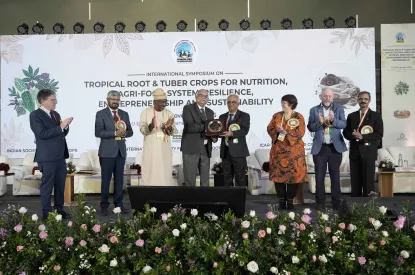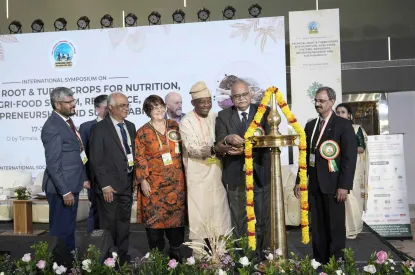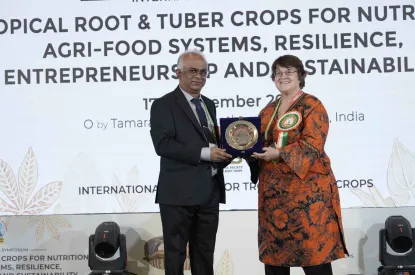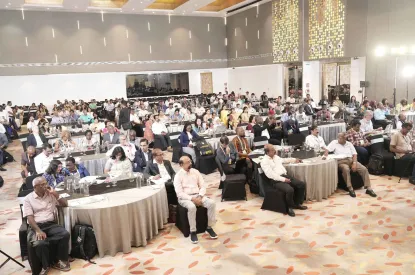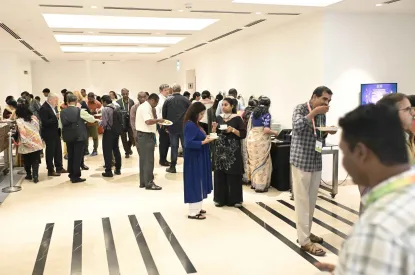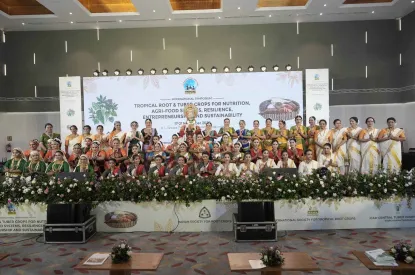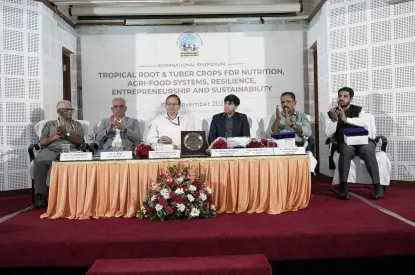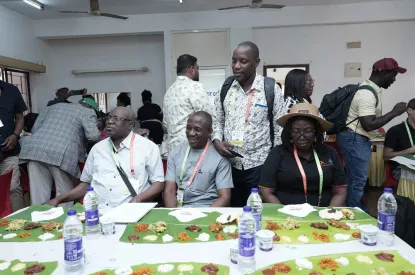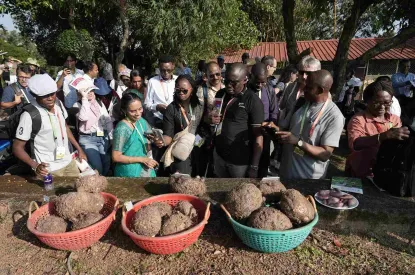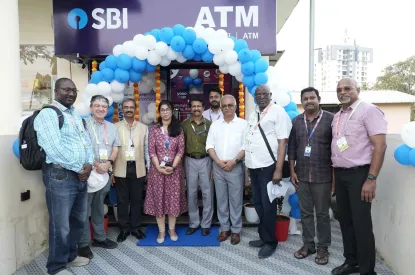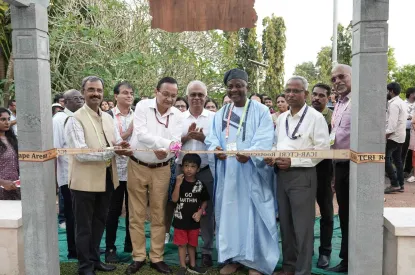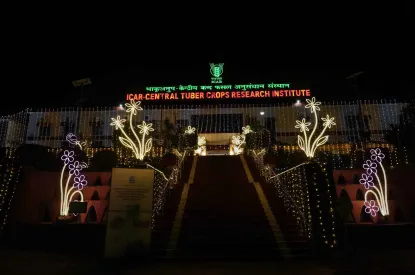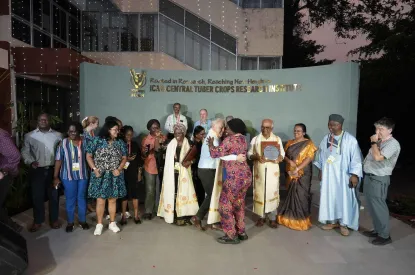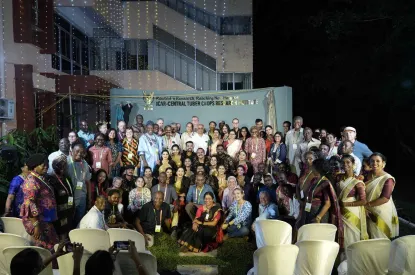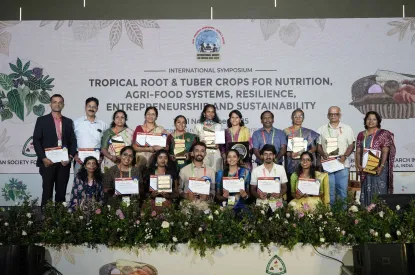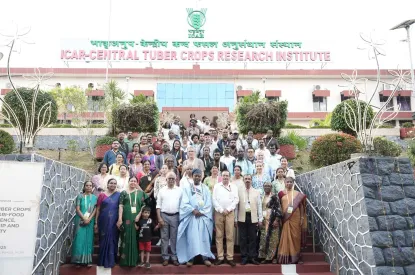Event Date
GLOBAL SYMPOSIUM CHARTS NEW ROADMAP FOR CLIMATE-RESILIENT ROOT & TUBER CROP SYSTEMS
ISTRTC 4 NARES concludes in Thiruvananthapuram with actionable global recommendations
The International Symposium on Tropical Root & Tuber Crops for Nutrition, Agri-food Systems, Resilience, Entrepreneurship and Sustainability (ISTRTC 4 NARES) successfully concluded on 21 November 2025 at Hotel O by Tamara in Thiruvananthapuram bringing together global leaders in agricultural science, policy, and innovation. Organized jointly by the International Society for Tropical Root Crops, Indian Society for Root Crops, and the ICAR-Central Tuber Crops Research Institute (CTCRI), the five-day scientific event (17–21 November 2025) highlighted the growing global importance of cassava, sweet potato, yams, taro, elephant foot yam and related crops in achieving nutrition security, climate adaptation, and livelihood resilience.
GLOBAL THOUGHT LEADERS PRESENT BREAKTHROUGHS
Seven distinguished keynote speakers delivered high-impact lectures that shaped the symposium’s scientific direction:
Dr. G. Byju showcased India’s strides in germplasm conservation & crop improvement, climate-smart agronomy, digital agriculture and value-chain strengthening. He called for the launch of a National Mission on Tuber Crops to unify clean seed systems, processing clusters, and market integration.
Prof. Lateef O. Sanni (Nigeria) highlighted Africa’s success with commercial cassava seed systems and processor-driven value chain models.
Dr. Hugo Campos (CIP-CGIAR) emphasized a systems approach integrating genetics, regenerative agriculture, and urban food demand.
Prof. Andrew Westby OBE (UK) linked global cassava development with poverty reduction and gender equity.
Dr. Stephan Winter (Germany) stressed the rising threat of transboundary pests and the need for genomics and CRISPR-driven solutions.
Dr. Jan W. Low (Kenya) showcased a gender-transformative OFSP adoption model from Ghana.
Dr. R. Selvarajan (ICAR–NRCB) presented India’s achievements in AI-enabled banana farming and development of Asia’s largest banana gene bank.
300+ SCIENTIFIC CONTRIBUTIONS ACROSS SIX SESSIONS
The symposium hosted about 300 lead, oral, and poster presentations by 256 researchers including 92 from abroad from 22 countries covering:
Biodiversity, genetic improvement & genome editing
Biotechnology, bioinformatics, multi-omics and precision breeding
Sustainable resource management, nano-fertilizers, irrigation, smart farming
Biotic & abiotic stress management, rapid diagnostics and disease surveillance
Secondary agriculture, value addition, processing, mechanization and circular bioeconomy
Socioeconomic development, gender-responsive innovation and enterprise support
Advanced seed systems, decentralized multipliers and commercialization pathways
Special session on banana
The young scientist award competition showcased cutting-edge contributions from emerging researchers.
KEY RECOMMENDATIONS OF THE SYMPOSIUM
Drawing from extensive global deliberations and session-wise recommendations, the symposium identified the following priority actions:
Launch a national tuber crop seed systems framework to strengthen clean seed systems and phytosanitary frameworks through rapid multiplication, decentralized seed multipliers, disease-indexed planting material, and harmonized diagnostic protocols.
Accelerate climate resilient breeding through genomics and genome-edited breeding pipelines to develop climate-resilient, high-starch, nutrient-rich, soft-peeling, and consumer-preferred varieties across root & tuber crops.
Promote climate-smart and resource-efficient farming across value chains including precision nutrient management, nano-fertilizers, drought-mitigation strategies, drip irrigation, IoT-driven irrigation, and integrated organic farming.
Deploy digital and AI-enabled decision-support systems, including e-Crop Based Smart Farming, UAV-ML phenotyping, and predictive crop simulation models.
Strengthen surveillance & rapid diagnostic capabilities through molecular surveillance, molecular diagnostics (LAMP/ELISA), rapid detection, multi-omics tools, and integrated disease management. Border phytosanitary vigilance to manage transboundary pests and diseases including cassava mosaic disease, cassava brown streak disease, cassava frog skin disease etc.
Secondary agriculture, bioeconomy and rural entrepreneurship by supporting value-added products, starch-based biopolymers, biodegradable packaging, processing machinery, and waste-to-wealth technologies.
Integrate gender-responsive and nutrition-sensitive innovations, including orange-fleshed sweet potato (OFSP) scaling, rainbow diet campaigns, and women-led processing enterprises.
Public-private partnership for value chain modernisation by strengthening collaborations among research institutions, industries, start-ups and farmer organisations to boost value chains especially in processing, marketing and export-readiness.
Build global R&D networks and human capacity for accelerated germplasm exchange & breeding, disease management, technology transfer, capacity building, and commercialization and to develop next-generation scientific leadership.
Support policy interventions for nutrition security and farmer prosperity by formulating national policies.
A GLOBAL PLATFORM FOR ACTION
The symposium concluded that tropical root and tuber crops are poised to play a transformative role in addressing global challenges related to food and nutrition security, climate-change resilience, income generation, and sustainable agriculture. With a comprehensive roadmap and strong international partnerships, ISTRTC 4 NARES has set the stage for coordinated global action and accelerated innovations in the root & tuber crops sector.

